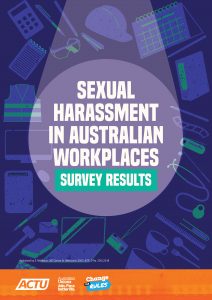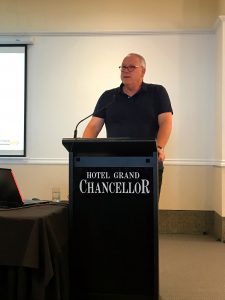 This Sunday SafetyAtWorkBlog will be reporting from the 2018 National Conference of the Australian Labor Party (ALP). It promises to be extra lively as the country is only a few months away from a General Election and the ALP is tipped by most to win, or rather, the Liberal/National Coalition to lose. The intention is to watch for discussion of issues that relate to, or affect, the management of worker health and safety. There will be some, if one accepts that the most effective and sustainable occupational health and safety (OHS) solutions come from both a introduce multidisciplinary approach and that one that looks “at the source” of hazards.
This Sunday SafetyAtWorkBlog will be reporting from the 2018 National Conference of the Australian Labor Party (ALP). It promises to be extra lively as the country is only a few months away from a General Election and the ALP is tipped by most to win, or rather, the Liberal/National Coalition to lose. The intention is to watch for discussion of issues that relate to, or affect, the management of worker health and safety. There will be some, if one accepts that the most effective and sustainable occupational health and safety (OHS) solutions come from both a introduce multidisciplinary approach and that one that looks “at the source” of hazards.
The current draft National platform has a specific chapter on Safety At Work but the document is riddled with safety commitments. Curiously there is no specific mention of Industrial Manslaughter, although the ALP will
“ensure there are strong deterrents for employers who are responsible for workplace deaths”.


 Occupational health and safety (OHS) is often about promises. Employees trust their bosses to provide them with a job and the employer promises to provide a workplace that is as safe as possible. There are also contractual policies which formalise OHS relationships between client and contractor. But OHS is more often about those more personal promises and expectations between the boss and the worker.
Occupational health and safety (OHS) is often about promises. Employees trust their bosses to provide them with a job and the employer promises to provide a workplace that is as safe as possible. There are also contractual policies which formalise OHS relationships between client and contractor. But OHS is more often about those more personal promises and expectations between the boss and the worker. Today,
Today,  In 2017 the Victorian Government reviewed and revised its
In 2017 the Victorian Government reviewed and revised its  Earlier this week former chair of the Australian Government’s
Earlier this week former chair of the Australian Government’s  This article is part two of an edited version of a keynote presentation I made at the a special WHS Inspectors Forum organised by WorkSafe Tasmania. The audience comprised inspectors from around Australia and New Zealand. I was asked to be provocative and challenging so posed some questions to the audience about how occupational health and safety (OHS) is managed, regulated and inspected.
This article is part two of an edited version of a keynote presentation I made at the a special WHS Inspectors Forum organised by WorkSafe Tasmania. The audience comprised inspectors from around Australia and New Zealand. I was asked to be provocative and challenging so posed some questions to the audience about how occupational health and safety (OHS) is managed, regulated and inspected.